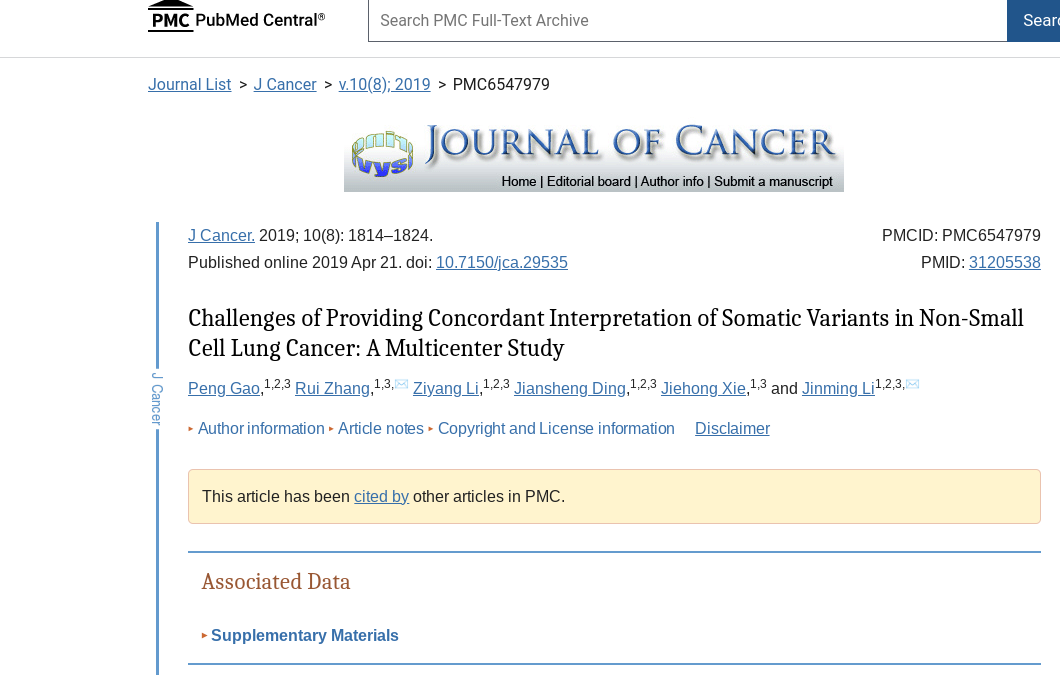
Jun 29, 2022 | References
“Owing to numerous reasons, the interpretation of variants differed greatly, which might in turn lead to the inappropriate clinical care of patients with NSCLC.”
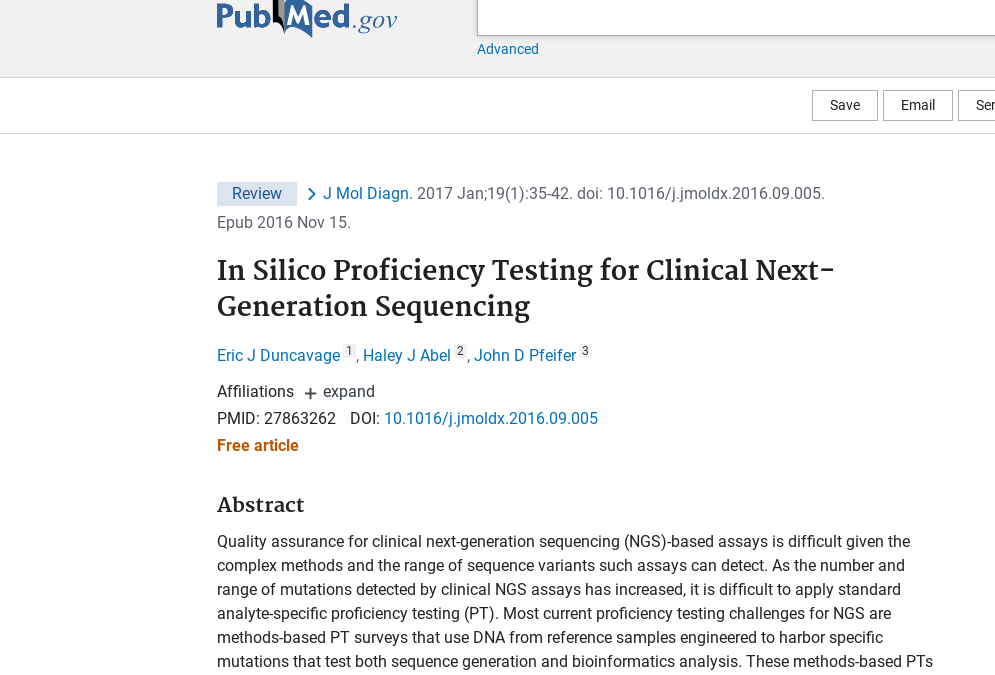
Jun 29, 2022 | References
“Most current proficiency testing challenges for NGS are methods-based PT surveys that use DNA from reference samples engineered to harbor specific mutations that test both sequence generation and bioinformatics analysis. These methods-based PTs are limited by the number and types of mutations that can be physically introduced into a single DNA sample. In silico proficiency testing, which evaluates only the bioinformatics component of NGS assays, is a recently introduced PT method that allows for evaluation of numerous mutations spanning a range of variant classes.”
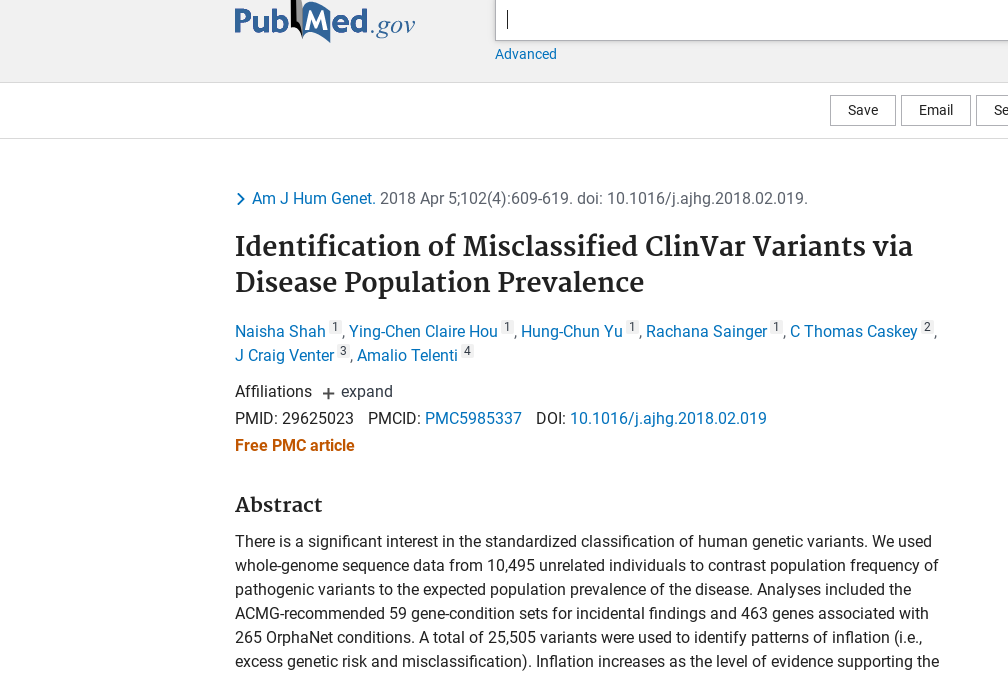
Jun 29, 2022 | References
“We observed up to 11.5% of genetic disorders with inflation in pathogenic variant sets and up to 92.3% for the variant set with conflicting interpretations. This improved to 7.7% and 57.7%, respectively, after filtering for disease-specific allele frequency. The patterns of inflation were replicated using public data from more than 138,000 genomes. The burden of rare variants was a main contributing factor of the observed inflation, indicating collective misclassified rare variants. We also analyzed the dynamics of re-classification of variant pathogenicity in ClinVar over time, which indicates progressive improvement in variant classification. The study shows that databases include a significant proportion of wrongly ascertained variants; however, it underscores the critical role of ClinVar to contrast claims and foster validation across submitters.”
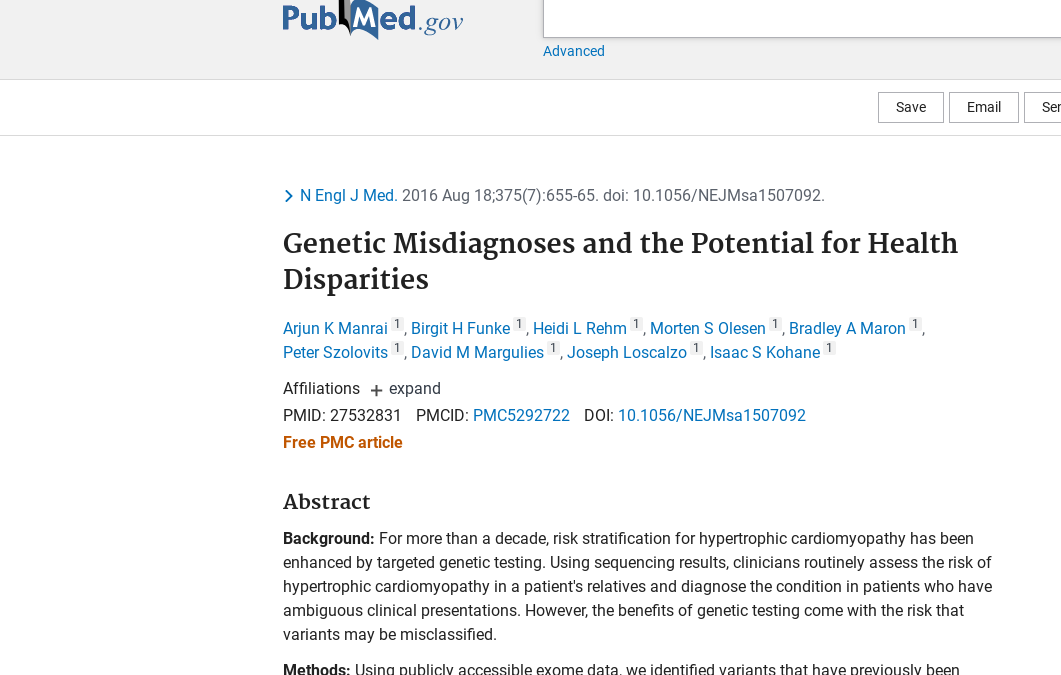
Jun 29, 2022 | References
“Multiple patients, all of whom were of African or unspecified ancestry, received positive reports, with variants misclassified as pathogenic on the basis of the understanding at the time of testing. Subsequently, all reported variants were recategorized as benign. The mutations that were most common in the general population were significantly more common among black Americans than among white Americans (P<0.001). Simulations showed that the inclusion of even small numbers of black Americans in control cohorts probably would have prevented these misclassifications. "
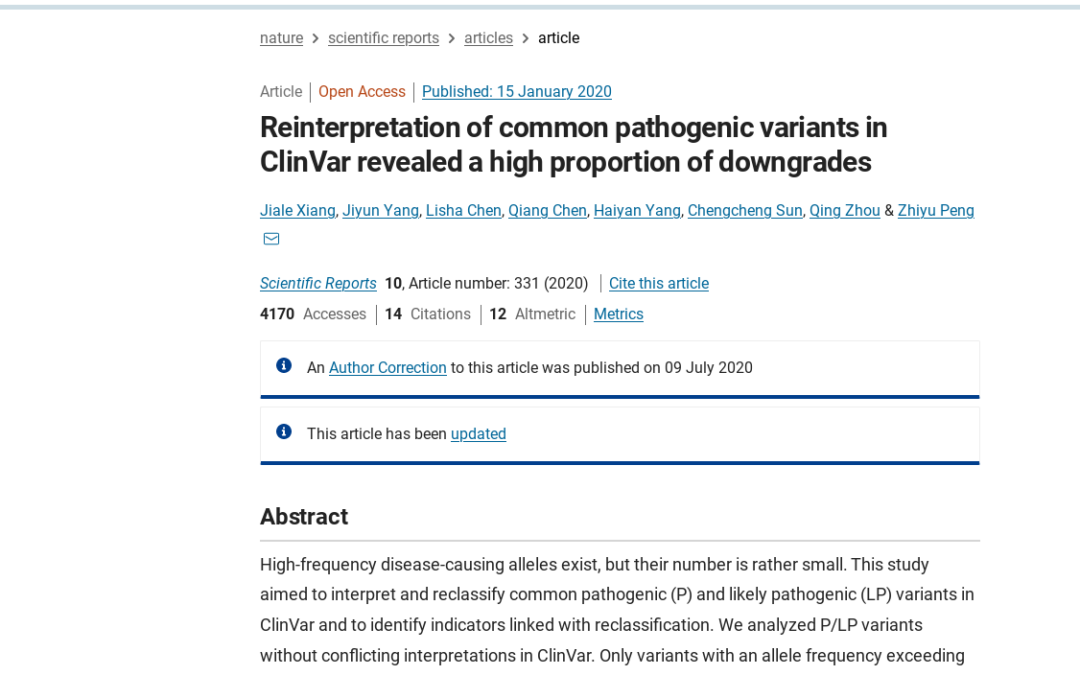
Jun 29, 2022 | References
“Of 326 variants retrieved, 217 variants in 173 genes were selected for curation. Overall, 87 (40%) variants were downgraded to benign, likely benign or variant of uncertain significance. Five variants (2%) were found to be more likely to be risk factors.”





Recent Comments